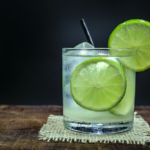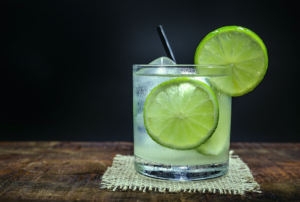 Wearing certain clothing styles has been linked directly to aggravation of varicose and spider veins.
Wearing certain clothing styles has been linked directly to aggravation of varicose and spider veins.
Because varicose veins are bulging, ropy, and red or purplish in color, they tend to really stand out no matter where they are located on the body, though they are most commonly present on the legs.
Also because varicose veins are so noticeable, and not in a good way, it should come as no surprise that those who are affected by them generally try to hide their appearance. Typically, this involves wearing pants year-round, which if you live in Southern Florida, can definitely present a problem.
Now that you know how your veins are affecting the way you dress; you should consider how the way you dress is affecting your veins. While the clothing that you wear will not lead to the development of varicose veins in themselves, your clothing can contribute to the level of comfort or discomfort that you feel daily.
Tight Clothing
It may seem contradictory that compression stockings are recommended for those with venous disease, and yet, at the same time, tight clothing can contribute to the development of varicose veins. While compression stockings were specially designed to apply certain levels of compression to certain areas of the legs and feet, simply wearing tight clothing will not have the same beneficial effects.
Tight clothing, especially items that are more constrictive around the legs and waist, can have detrimental effects on the veins in the long term. This is because they restrict the normal circulation of blood, obstructing the flow of blood from the legs back to the heart, resulting in an increase in pressure within the veins.
High Heels
Wearing high heels may initially make your legs look better while you are wearing them but can only make things worse in the long run if special care is not taken.
Walking in high heels changes the natural motion of your legs and feet, shifting your weight from the calves into the toes and forefoot instead. This results in a less forceful calf muscle pump, which in turn results in the pooling of blood within the leg veins.
Because the higher the heel is, the more negative the results, vein specialists usually recommend keeping heels low and only wearing them during special events or occasions. If you typically wear stockings when in heels, it is also recommended that you wear compression stockings whenever possible, as they can ease the symptoms of venous insufficiency and are virtually indistinguishable in appearance from regular stockings.
Compression Stockings
Compression stockings are a special type of hosiery designed specifically to prevent varicose veins from forming and to prevent the progression of current varicose veins from getting worse. Built to compress the legs in specific ways and locations, compression stockings can greatly relieve venous pressure along with much of the discomfort that comes as a result.
Compression stockings are tightest at the ankles and become progressively looser towards the thighs, increasing arterial pressure and allowing more blood to reach the heart and less blood to pool in the feet and ankles. While compression stockings are sometimes prescribed by physicians, they are available over-the-counter in most drug stores and pharmacies.
For more information on venous insufficiency treatments and home remedies for pain or discomfort associated with varicose veins, or to discuss whether a compression stockings prescription is right for you,
contact Dr. Zuzga of West Florida Vein Center today
at (727) 712-3233. www.westfloridaveincenter.com.


 That’s right. The health of your veins can be majorly impacted by what you choose to put in your body. Alcohol being one of the very worst offenders when it comes to damaging vein and circulatory health.
That’s right. The health of your veins can be majorly impacted by what you choose to put in your body. Alcohol being one of the very worst offenders when it comes to damaging vein and circulatory health.
 The answer is YES sugar can harm your heart when eaten in excess.
The answer is YES sugar can harm your heart when eaten in excess.